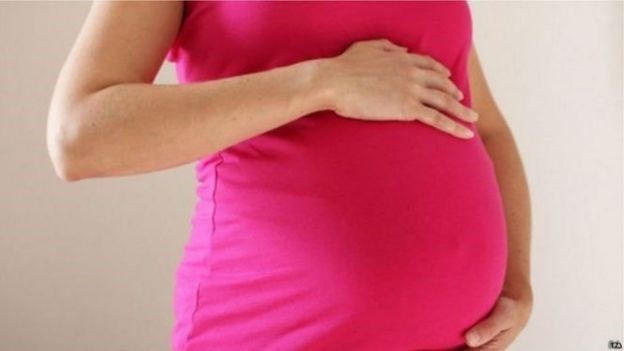Women struggling with two serious problems due to corona-lockdown
The lockdown imposed due to Corona virus has also affected health facilities. On one hand, the pressure on hospitals increased, on the other hand people were deprived of health facilities.
It also affected the reproductive health of women and they did not get adequate facilities for abortion and contraception. Because of this, he had to oppose unsafe methods of abortion.
According to a report by the iPass Development Foundation, during the three months of lockdown (25 March to 24 June), 18.5 million women had unsafe abortions or had unintended pregnancies.
IPass Foundation is a non-governmental institution working in the field of sexual and reproductive health of women. The institute has released a report on the impact of the lack of health facilities on women during lockdown.
What’s in the report?
The estimated abortion occurring in three months is the basis for this report. For this, the data of a 2015 report of Lancant was used.
One crore 56 lakh (1.56 crore) abortions occur in India in a year. Of these, 73 percent of chemist abortions are through medicines, 16 percent in private health facilities, 6 percent in public health facilities and 5 percent in traditional unsafe ways.
An average of 39 lakh abortions were estimated in three months, but out of this, 18 lakh 50 thousand abortions could not take place. The most disturbing miscarriage occurred in the first 40 days (Lockdown 1). Then 59 percent of abortions could not happen, 46 percent in the next 14 days (lockdown 2), 39 percent of abortions in 14 days (lockdown 3).
However, after that the situation kept improving. In the period from 1 to 24 June, an improvement was seen in this case. During this time, 33 percent of abortions did not occur.
Information was collected through three means to collect abortion data. Women go to public and private health facilities for abortion or take abortion medicines from chemists. Many people also get abortions illegally, but it has not been made a part of the report.
Public Health Facilities – Primary Health Center, Community Health Center and Hospital
Private Health Facilities – Clinics, Nursing, Maternity Homes and Hospitals
Why unsafe abortions
Vinose Menin, CEO of the iPas Foundation, says that reproductive health facilities are always affected during disaster management, leading to increased unwanted pregnancies and unsafe abortions. Some similar conditions also arose during the Corona epidemic. Women could not find safe methods of abortion and contraception. Many reasons were responsible for this.
– Women were unable to reach hospitals and clinics. One was afraid of going to the hospital due to Kovid and the other was the transportation stopped.
– During the lockdown, the police was strict and it was necessary to give reasons to the exit. In such a situation, it is difficult to tell that going to hospital for abortion. That’s why people were hesitating to get out.
– Chemist shops were opening less. In the lockdown, supplies of abortion medicines were not the same everywhere.
Due to Kovid, the burden on health services increased significantly. Many hospitals were made Kovid facilities. The doctors and nurses were put in Kovid duty. However, it was also necessary to do so. But this affected the treatment of other diseases.
– Many OPDs were closed in private hospitals in the first month and clinics closed. The doctors and staff feared the corona virus, the staff were unable to reach hospitals or clinics and protective equipment was also not readily available at that time.
Unsafe abortion loss
Dr. Atul Ganatra, Vice President of the Federation of Obstetric and Gynecological Societies of India (FOGC), says, “A lot of efforts were made by the government and doctors to ensure that women do not face any problems.” Talked to the patients through video call and they were given correct advice. Nevertheless, during this period there was a shortage of contraceptive pills, copper tea and abortion drugs. ”
When women are not able to perform abortions safely, they adopt unsafe methods.
Doctor Atul explains that women take papaya, eat hot things, go to the midwife or take any medicine without medical advice to perform abortions at home. But, this can cause infection to them and may even kill them. At the same time, when the health worsens, it becomes difficult to treat them even in the event of disaster.
Lack of proper health facilities affects the life of not only the woman but her entire family.
Vinoj Menon cites an example that during the survey, a case came up in which a village woman had four children and did not want to have a fifth child. However, she could not get an abortion in lockdown and now she had to have a fifth child.
Reproductive Health Facilities in Disaster Management
Disasters happen in our country from time to time. Somewhere there is flood, somewhere is dry and there is storm. In such situations, it is natural for health facilities to be affected. Women also cannot escape its effects.
Vinoz Menon says, “Reproductive health of women is affected in every disaster. But, usually these disasters come in a limited area and for a limited time, so the reproductive problems of women in them go unnoticed. Then there is more emphasis on providing food, living, medicines and clothes etc. and reducing the damage of disaster. “
Dr. Atul says that it has to be understood that delivery cannot be stopped in any disaster, abortion must also be done within a fixed time frame. But, if the disaster lasts for several months, the time of abortion will pass. In such a situation, a woman will have to conceive an unwanted pregnancy. So these are emergency health needs in a way that cannot be ignored. ”
Vinos Menon and Dr. Atul give some suggestions for how to make it a priority place in disaster management.
– Fertility facilities should form part of disaster management. Every state has a disaster management agency, it should also consider in its plan how the facility of contraception and abortion can be given in odd situations.
– We have to find new ways like tele medicine. People do not need to come to the hospital. They can contact the doctor through video conferencing or WhatsApp video call.
A helpline should be created to support women in reproductive problems, so that women can get contraception, abortion and fertility advice at one place.
– Stock of abortion and contraceptive medicines can be kept. They can be made part of other essential medicines. Just as sanitary pads are delivered, similarly, these medicines can be given to the needy on medical advice.




